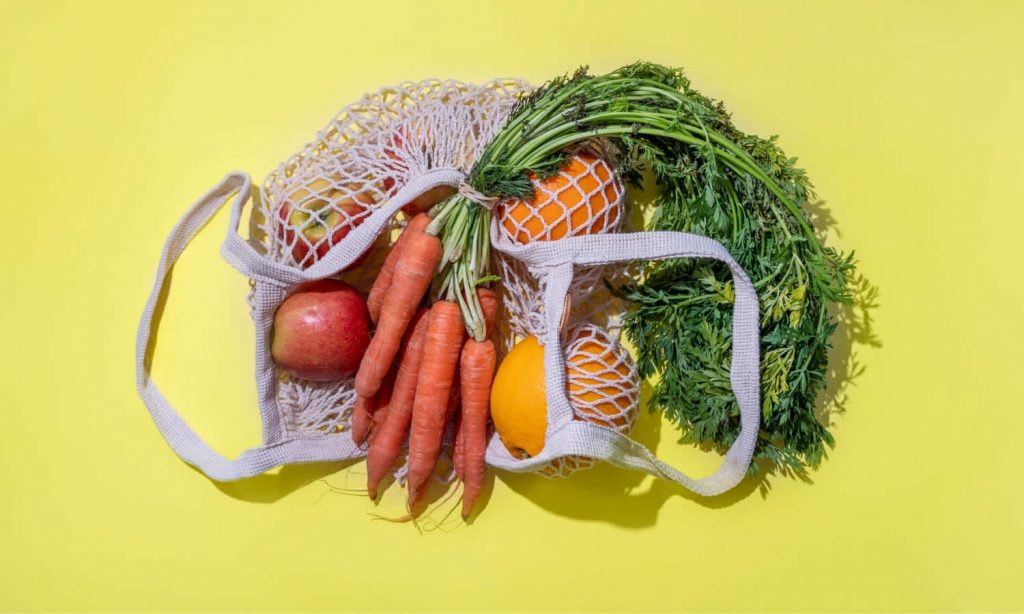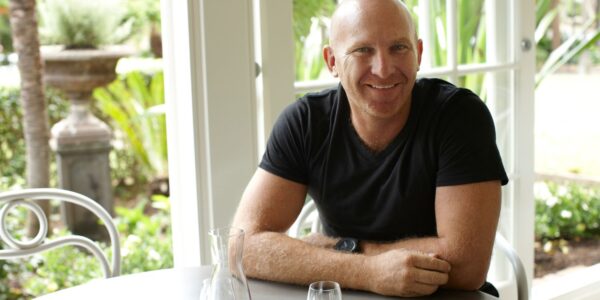There’s literally never been a better time to eat less meat. We’re going out less and staying in more, which means we have way more time to experiment with plant-based dishes.
Reducing the amount of meat in your diet — or eliminating it completely — can be hard if you’re not equipped with the right information. We spoke to clinical nutritionist Holly Arnold about the best ways to increase your consumption of plant-based foods without feeling deprived or hungry.
“The term ‘plant-based’ is thrown around a lot, but it is important to clarify that ‘plant-based’ doesn’t just refer to those following a vegan diet as commonly believed,” Arnold told TheLatch—.
“Plant-based describes eating a diet that is predominantly made up of plants, focusing on the intake of vegetables, fruits, wholegrain, seeds and nuts, whilst minimising your consumption of animal products.
“This basically means that you can still be plant-based and consume small amounts of animal products, or you can choose to consume no animal products, such as a vegan diet.”
According to Arnold, there are a plethora of health benefits associated with reduced meat consumption and they all sound pretty damn good.
“The health benefits of plant-based eating include an increased intake of vitamins and minerals, reduced risk of cardiovascular disease and comorbidities, improved weight management, reduced risk of many cancers, improved gut health, better immune function, reduced inflammation, improved mental health and reduced risk of diabetes,” Arnold said.
“The research shows that it is the amount and variety of plant-based foods in a person’s diet is the most important factor and the key contributor to the many health benefits of plant-based eating.
“Still aiming for five a day? It’s time you upped the ante. The latest research now shows we need to aim for 30 different plant-based foods per week to reap the benefits. The high amount of fibre and other plant components are to thank for all the never-ending health benefits, as they increase the growth of beneficial bacteria and consequently help support a healthier and more diverse microbiota.”
How to transition to a plant-based diet
Take your time
Slowly removing meat from your everyday diet is the way to go. You don’t need to completely overhaul the way you eat within the space of a day.
“Start with a few meat-free meals a week and then gradually progress from there until you find the right balance for you,” Arnold said.
“I see a lot of people who decide overnight that they will move to a plant-based diet and for many, this can be a difficult adjustment in terms of knowing what to buy, how to prepare new foods, fitting them into your lifestyle and ensuring you are ticking off all of your nutritional requirements.”
Your body also needs time to adjust to a new way of eating too, according to Arnold. Experiencing flatulence or bloating due to an increase in consumption of fibre-rich foods like legumes and beans is normal.
“This is due to changes with the gut microbiota — as our gut bugs aren’t used to getting as much beneficial fibre!” she said.
“Overtime your microbiota will adjust (this is a positive thing as fibre is the fuel our bacteria need to thrive) and should settle down. If you’ve never really had beans or legumes before, my advice is to start with a teaspoon with a meal, then move to a tablespoon and gradually increase from there.”
Check-in with a medical professional
“If you’ve got any preexisting medical conditions, you must discuss any significant dietary changes with your doctor,” said Arnold.
“And if you have got a medical condition to consider, are trying to fall pregnant or are breastfeeding, I’d strongly recommend working closely with a nutritionist or dietician to ensure you’ve got the right support.
“I also recommend that anyone transiting to a plant-based diet checks in with their doctor for blood tests every six months or so, to ensure they are meeting their dietary needs and if not, adjust their diet or supplement accordingly.”
Get organised
While there are heaps of options available for vegos and vegans these days, eating plant-based meals does require a little more preparation.
“When putting together a meal, make sure you’ve ticked off the main food groups,” said Arnold.
“Your meals should contain a complete plant-based source of protein, plenty of vegetables, a source of complex carbohydrates and some healthy fats. If you are finding it and to come up with meal ideas I recommend getting some vegetarian and vegan cookbooks for recipe inspiration.
“It might even help you to sit down and plan out a few meals and write out a shopping list, so your organised and know you’ve got everything you need to make healthy meals and snacks throughout the week.”
Traps to avoid when adapting to a plant-based lifestyle
Arnold also warns against falling for pre-made or pre-packaged vegan food, as it’s not necessarily that healthy.
“As the term ‘vegan’ and ‘plant-based’ is used a lot in marketing now, many people assume that vegan = a healthy option,” she said.
“However, in reality, junk food is junk food. So it’s important to carefully check the ingredients list if you are buying pre-made foods and being conscious of what options you are going for if you are eating out.
“Just because something is vegan, doesn’t mean its automatically healthy! My advice is to go for naturally vegan things, over the fake meats and replacements, which are often heavily processed and full of unnecessary ingredients.”
According to Arnold, nutritional deficiencies are another issue people deal with after moving to a plant-based diet.
“When transiting over to a vegan diet most people initially feel amazing,” she said.
“They’ve made a positive change, are eating far more fruits, vegetables, whole grains and fibre and as a whole, feel a whole lot better. However, after the initial excitement and motivation have worn off, it can be easy to become complacent. I see many people get less diligent about ensuring their meals are balanced and they are consistently meeting their nutritional requirements.”
While the health benefits of leading a plant-based lifestyle are great, certain nutrients from plants aren’t as well absorbed or utilised by the body as some of those found in animal products.
“You, therefore, have to be more diligent about your diet to ensure you are meeting all of your nutrient requirements and are supplementing requirements you can’t meet through diet alone,” Arnold said.
“This isn’t to say that the only people I see with nutritional deficiencies are vegans, but it’s something I do see more often than not. As a practitioner, all I want is for patients to be happy and healthy, so it breaks my heart to see people facing health issues that could be avoided with the right education.
“If you are unsure about nutritional requirements and supplementation, consult your doctor, dietician or nutritionist. The key nutrients you need to be aware of are Vitamin B12, Iron, Zinc, Calcium, Omega 3, Iodine, Vitamin A and Vitamin D.”
Always consult your GP before making any drastic health changes.







